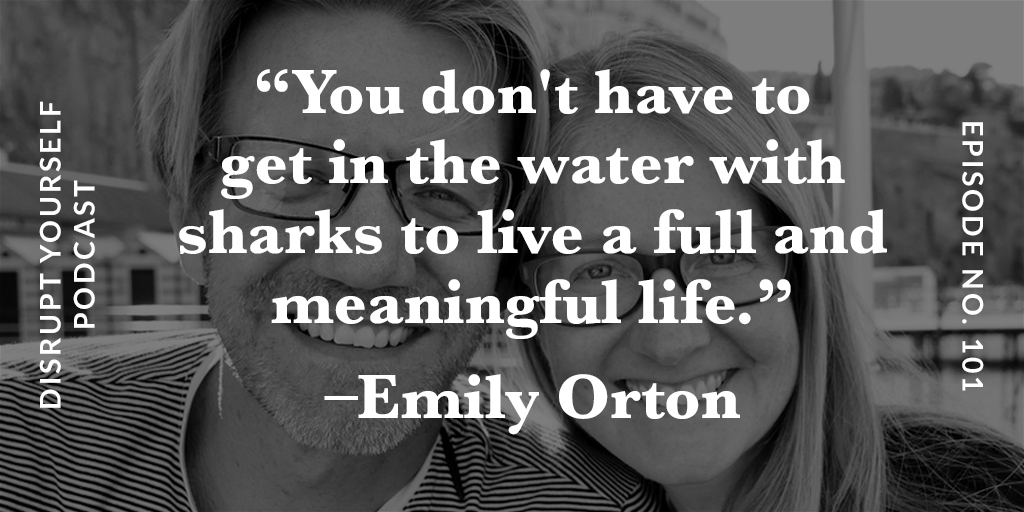When Erik and Emily Orton sailed their boat up the Hudson River, there was no one to greet them. It was late, and no fanfare or celebration disturbed the stillness of the night. But the Orton’s and their five children felt what they had sensed many times over the past year: a quiet victory. They had made it. One year and 2,500 miles after leaving home, the Orton’s had managed to sail their family from St. Martin’s in the Caribbean all the way back to New York City.
“[W]e just walked a quarter mile home, and we just looked at each other in this sort of quiet amazement, like this is actually happening. We did the thing we were going to do and to go from idea to reality at that level for us was really magical.”
Today on the podcast my guests have a particularly unusual story of disruption. I typically showcase individuals who jump to a new professional learning curve, but Erik and Emily didn’t just jump, they leapt, swam, and climbed up a curve completely removed from their original day to day life. As documented in their book Seven at Sea, they chose to live on a boat with their five children for a year while sailing up the east coast of the United States at the breakneck speed of 5 miles an hour. While many would balk at the idea of taking a year off of work (and some would say life) to make such a trip, the Orton’s felt strongly that this opportunity would be transformative—in all the best ways. Through physical strain and emotional courage, Erik and Emily found their balance, strengthened their family, made lifelong friends along the journey and learned that they can, in fact, do hard things.
“[E]ven when you fail over and over again, you’re always failing forward and failing better and failing fast.”

I’m in awe of the Orton’s journey. It’s fascinating, action-packed and more than a little amazing. Join us today as we discuss how living on a boat became a palatable option for their family, what surprised them about the experience, and how their kids adapted to life on the high seas.
Listen in the player above, or download the episode on iTunes. If you like what you hear please leave me a message! If you haven’t already, I highly recommend that you read their book to learn more of their story (after finishing this podcast, of course!).
Takeaways from this episode:
- Our past does not always dictate our future. Erik hated his first boat ride, and he did not grow up in a household that sailed. He had to go out of his way to get a sailing class created for him that worked with his schedule, and yet once he brought his family in to the experience he found that it created a unique sense of calm in his life. What changes your perspective? What challenges you? What ideas do you find interesting that you can’t shake?
- The Orton’s assumed that living in close quarters on a boat without the distractions of digital toys would lead to more family time, but they were both surprised by how much they still needed to schedule time together as a family.
- “Even if you don’t know what to do the first time, you can learn from it and get better and learn what to do when it comes up again.”
- Remember to not only ask yourself “What can go wrong?”—ask yourself “What could go right?” The opportunity cost of not doing something can be high. If you are in a good spot there is a chance that things can get even better.
- “We still don’t know how things are going to turn out, but we now have the confidence in ourselves that we can find a solution.”
Links Mentioned in this Episode:
- Erik & Emily Orton – Website | Facebook
- Erik – Instagram | Twitter
- Emily – Instagram
- Seven at Sea: Why a New York City Family Cast Off Convention for a Life-changing Year on a Sailboat by Erik and Emily Orton
- The 4-Hour Workweek: Escape 9-5, Live Anywhere, and Join the New Rich by Timothy Ferriss
- “The Tail End” by Tim Urban
- Disrupt Yourself Podcast – Episode 60: Laura Vanderkam

